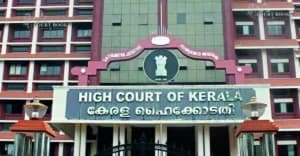The Madras High Court, in a significant ruling, held that a party that has nominated an arbitrator in response to a notice under Section 21 of the Arbitration and Conciliation Act, 1996, cannot later challenge the claim on the ground of limitation in a petition filed under Section 11 of the Act. Justice Abdul Quddhose, while delivering the judgment, observed that once the arbitration process is invoked as per the agreement, the party cannot retract and claim that the dispute is time-barred.
Case Background
The petition was filed under Section 11 of the Arbitration Act, seeking the appointment of an arbitrator to resolve a contractual dispute. The dispute stemmed from a water supply agreement dated July 25, 2013, and another agreement dated October 1, 2014, between South Ganga Waters Technologies (P) Ltd. and Vedanta Limited.
Read also:- Madras High Court Rejects Ex-Serviceman's Plea on Havana Syndrome Allegations
According to the petitioner, the respondent had breached the contract, leading to outstanding dues that necessitated arbitration as per the agreement. The arbitration clause in the contract explicitly provided for dispute resolution through arbitration in accordance with the Arbitration and Conciliation Act, 1996.
Arguments Presented
The respondent contended that the petitioner’s claim was time-barred since the contract dated July 25, 2013, had expired on December 31, 2015, and arbitration was initiated only in 2024. Additionally, they argued that the arbitration invocation notice dated September 10, 2024, did not pertain to the contract in question but instead referred to other agreements, including the one dated October 1, 2014.
Conversely, the petitioner argued that the arbitration notice explicitly mentioned the contract dated July 25, 2013, making it a valid invocation under Section 21 of the Arbitration Act.
Court's Observations
The court clarified that when a petition is filed under Section 11 of the Arbitration Act, the referral court is only required to examine the prima facie existence of an arbitration clause. Once an arbitration clause is found in the agreement, the matter must be referred to arbitration.
Read also:- Madras High Court: Watching Porn and Self-Pleasure Not Cruelty in Marriage
"The referral court should only look into the prima facie existence of the arbitration clause. Once the court is satisfied of its existence, it must refer the dispute to arbitration."
In this case, the court noted that the contract dated July 25, 2013, did include an arbitration clause, and the petitioner had invoked arbitration in accordance with the agreement.
The court further observed that the respondent, by nominating an arbitrator in response to the notice under Section 21, had acknowledged the arbitration process. Consequently, they could not now argue that the claim was time-barred.
"The respondent, having nominated an arbitrator in response to the notice issued under Section 21 of the Arbitration Act, cannot subsequently raise the plea that the claim is barred by limitation."
Read also:- Madras High Court Dismisses Plea Challenging Section 13 of the Family Courts Act
Limitation and Arbitration Invocation
The court held that the arbitration notice dated September 10, 2024, constituted a valid invocation under Section 21. Since the petition was filed within three years from this date, it fell within the limitation period.
"The limitation period for filing a petition under Section 11 of the Arbitration Act commences from the date of arbitration invocation notice. Since the notice was issued on September 10, 2024, the three-year period applies from this date."
Final Decision
The court ruled in favor of the petitioner, holding that the arbitration petition was within the limitation period. Consequently, the court allowed the petition and appointed an arbitrator to resolve the dispute.
Case Details:
Case Title: South Ganga Waters Technologies (P) Ltd. vs. Vedanta Limited
Case No.: Arb.OP.(comdiv) No.19 of 2025
Judgment Date: February 26, 2025
Presiding Judge: Justice Abdul Quddhose
Petitioner’s Counsel: Mr. Anirudh Krishnan
Respondent’s Counsel: Mr. Rahul Balaji















